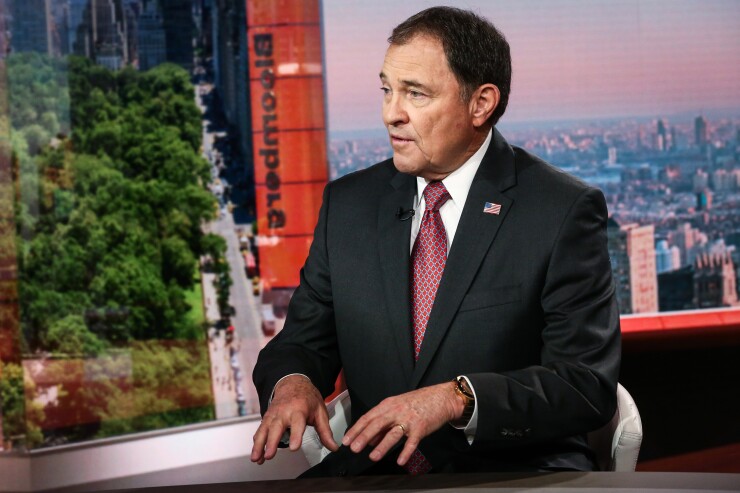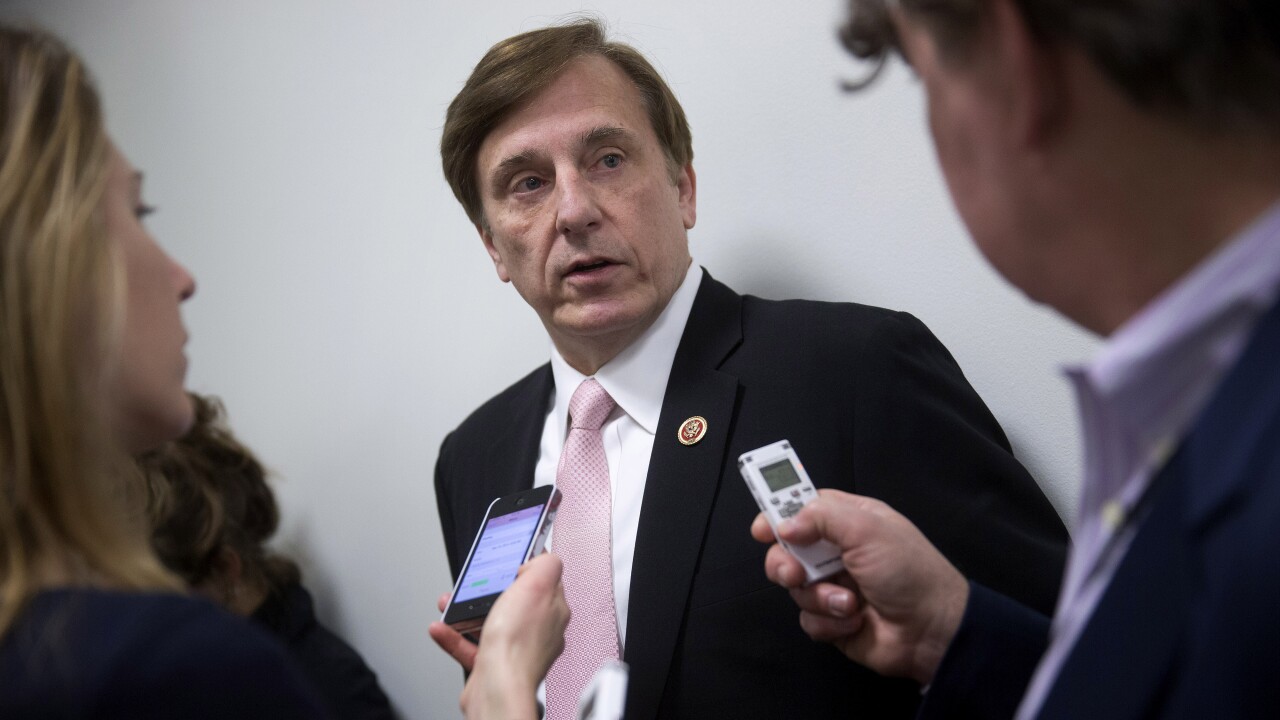With its triple triple-A ratings intact after a dust-up over taxes on food, Utah will supply a hungry market with $450 million of general obligation bonds in a negotiated sale next week.
The tax-exempt, fixed-rate bonds are scheduled for pricing Feb. 11 with Zions Public Finance Inc. as financial advisor and a syndicate led by Wells Fargo Securities as underwriters.

With final maturity in 2034, the bonds are earmarked for state highway projects.
The deal comes two weeks after the Utah Legislature killed a tax law passed in a December special session that was immediately threatened with repeal by a voter referendum. The aborted Senate Bill 2001 shifted taxes to unprepared food and a few services while lowering taxes on income.
Opponents noted that the bill increased the burden on the poor while easing demands on the wealthy. Backers countered that the law exempted food banks and those on food assistance while lowering state taxes overall by $160 million.
In his proposed budget, Gov. Gary Herbert referred to S.B. 2001 as “tax modernization,” and touted “a refundable grocery tax credit to offset adjusting the sales tax rate for groceries, a sizable personal exemption to offset the exemptions eliminated with federal tax reform, a Social Security tax credit, and an earned income tax credit that rewards work for those in inter-generational poverty.”
After organizers brought petitions with about 152,000 signatures to state officials, legislative leaders and Herbert announced on Jan. 23 that the law would be repealed.
“We applaud those who have engaged in the civic process and made their voices heard,” Herbert said in a joint statement with Senate President Stuart Adams and House Speaker Brad Wilson. “We are not foes on a political battlefield, we are all Utahns committed to getting our tax policy right. That work is just beginning.”
The tax controversy had no impact on the Beehive State’s credit, which tops the charts at Moody’s Investors Service, S&P Global Ratings and Fitch Ratings, all of which maintain stable outlooks.
“Strong growth in Utah's broad-based revenues reflects the breadth of the economy, which has ongoing growth potential,” Fitch analyst Alan Gibson wrote. “The state has complete control over its revenues, with an unlimited legal ability to raise operating revenues as needed.”
Before retreating on S.B. 2001, Herbert cited the ratings agencies as one motivator for its enactment.
“Indeed, even the rating agencies in New York City, who impact our reputation and borrowing costs, have suggested that changes to how we collect sales tax are necessary to ensure fiscal stability,” Herbert wrote in an op-ed for Utah newspapers in December. “Utah now enjoys a AAA credit rating, the highest-possible score, and we hold that credit rating with all three rating agencies. We’re one of only 12 states that qualify for this distinction. Our rating could be jeopardized if we don’t move forward with meaningful changes. This is a serious consequence, and not one that we should be willing to risk.”
Moody’s analyst Marcia Van Wagner and her team acknowledged that the 2019 tax measure “would have broadened the sales tax base, somewhat lowered the personal income tax rate and shifted more burden of funding transportation spending to user fees.”
“To mitigate the regressive impacts of aspects of the sales tax reforms, the package also included refundable tax credits for low and middle income households and other targeted provisions,” she noted. “It is possible that a new set of reforms will be developed.”
Republicans’ quick reversal on S.B. 2001 forced Herbert’s office to recalculate revenues derived from the December state consensus forecast.
The December forecast anticipated fiscal 2020 general and education fund revenue growth at 5.2%, including earmarked sales taxes, and 4.3% without them. Revenue growth with the additional taxes was forecast at 5.2% for fiscal 2021.
Herbert’s $20 billion executive budget proposal projects growth of 4.6% from fiscal 2019 spending and another 4.8% in fiscal 2021.
The U.S. Census Bureau says that Utah’s population has grown faster than that of any other state in the last decade. Population expected to reach 5.8 million by 2065.
Herbert, in his last full year as governor, identified education, the environment, mental health and Medicaid as his priorities.
“Education has always been, and continues to be, my number one budget priority,” Herbert said. “That is why, this year, we are investing $4.9 billion in K-12 public education, and over $1.6 billion in higher education.”
Herbert’s recommended budget for the 2021 fiscal year beginning July 1 is $20 billion, including state, federal, and certain local sources used in state funding formulas. The recommended budget funded by state-collected funds makes up $12.3 billion. The recommended budget for the General Fund and the Education Fund, the state’s two largest discretionary accounts, total about $8.3 billion.
Herbert recommends no new general obligation bond authorizations in the next fiscal year and recommends reinstatement of the $110 million ongoing General Fund allocation to minimize bonding for the state’s $650 million relocation of its state prison from Draper to near the Salt Lake City Airport.
“By not authorizing any new bonds, the Governor’s budget further solidifies the state’s budget buffers,” Herbert’s budget says, adding that pay-go funding could be replaced by bonds in a downturn.
Herbert recommends a $34 million transit budget increase to expand service and more frequent transit schedules during peak times, both of which are necessary to achieve more widespread ridership.
He also recommends $66 million for electric car infrastructure, including working with the private sector to increase the number of fast-charging stations throughout the state and to fund a $3 million match for a Utah State University National Science Foundation grant that focuses on electric vehicle transportation infrastructure build-out.
This will be the last budget recommendation that Herbert will oversee while in office. He and his staff will make a recommendation in December, but the newly elected governor will put his or her own budget with an updated plan for the 2021 Legislature.





